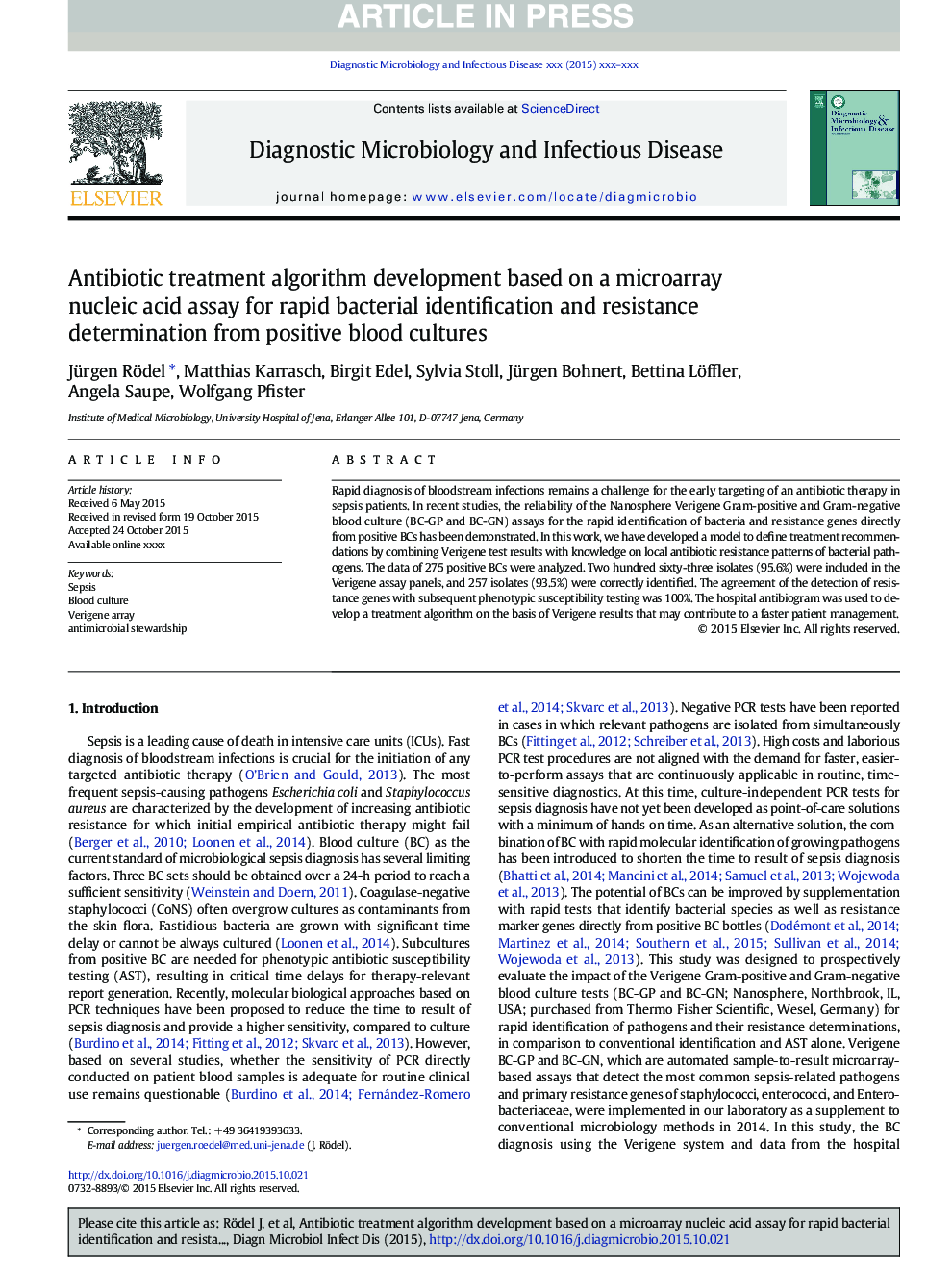| Article ID | Journal | Published Year | Pages | File Type |
|---|---|---|---|---|
| 6115639 | Diagnostic Microbiology and Infectious Disease | 2016 | 6 Pages |
Abstract
Rapid diagnosis of bloodstream infections remains a challenge for the early targeting of an antibiotic therapy in sepsis patients. In recent studies, the reliability of the Nanosphere Verigene Gram-positive and Gram-negative blood culture (BC-GP and BC-GN) assays for the rapid identification of bacteria and resistance genes directly from positive BCs has been demonstrated. In this work, we have developed a model to define treatment recommendations by combining Verigene test results with knowledge on local antibiotic resistance patterns of bacterial pathogens. The data of 275 positive BCs were analyzed. Two hundred sixty-three isolates (95.6%) were included in the Verigene assay panels, and 257 isolates (93.5%) were correctly identified. The agreement of the detection of resistance genes with subsequent phenotypic susceptibility testing was 100%. The hospital antibiogram was used to develop a treatment algorithm on the basis of Verigene results that may contribute to a faster patient management.
Related Topics
Life Sciences
Immunology and Microbiology
Applied Microbiology and Biotechnology
Authors
Jürgen Rödel, Matthias Karrasch, Birgit Edel, Sylvia Stoll, Jürgen Bohnert, Bettina Löffler, Angela Saupe, Wolfgang Pfister,
